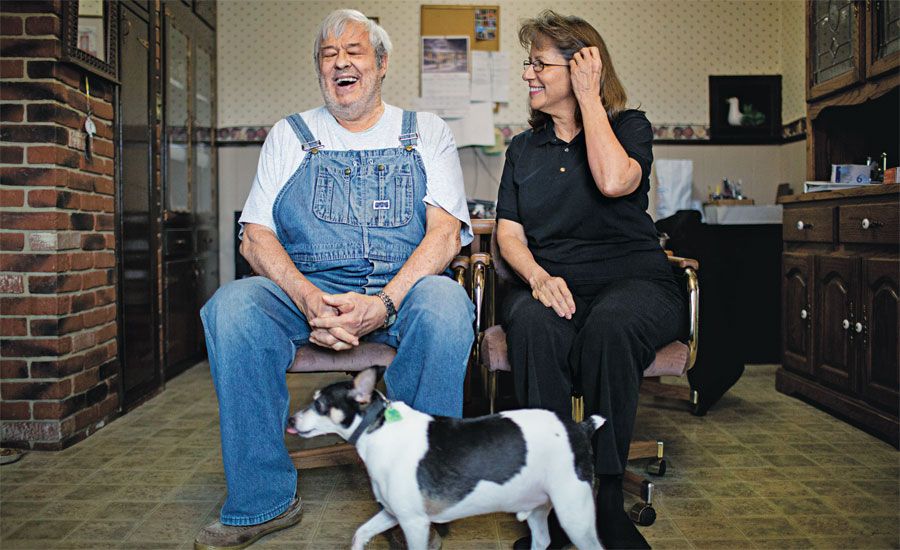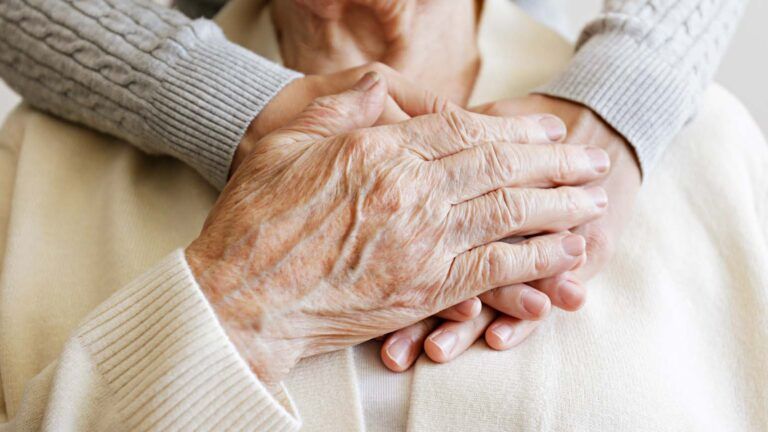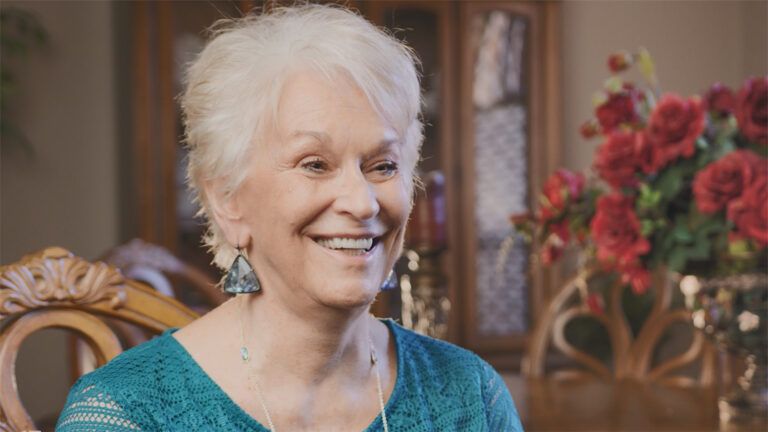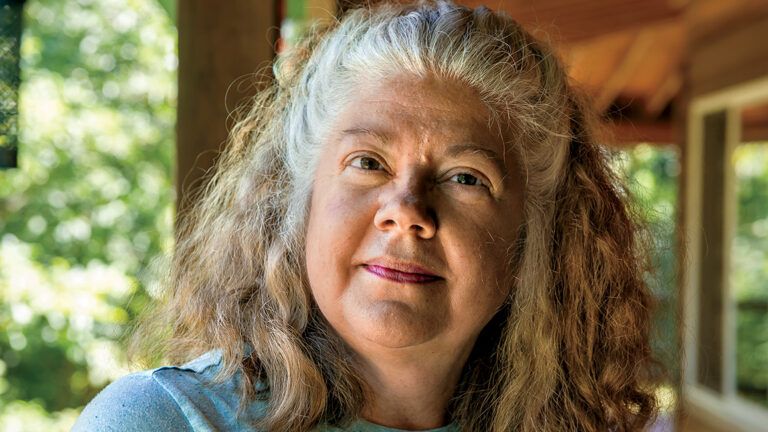My supervisor smiled. I could tell she was trying to look encouraging. “This could be a difficult assignment,” she said. “Roger has had several caregivers, but they’ve all quit. He needs a lot of help with organization and cleaning. I think you’ll be a good fit.”
I nodded. This was just my third week as a part-time caregiver for a senior-care organization. I appreciated her confidence in me.
“Wear clothes you don’t mind getting dirty,” she told me. She reached into a drawer and pulled out a dust mask. “Make sure you take this.”
I wasn’t worried. In my day job I worked full-time as a paralegal. I was a natural at organizing, and nothing made me feel better than a clean house. Roger would thank me.
ENJOYING THIS STORY? SUBSCRIBE TO GUIDEPOSTS MAGAZINE!
It was a 30-minute drive, far outside the city limits, to Roger’s house. On the way I thought about the other clients I’d worked with. Sweet lavender-scented ladies who needed nothing more than for me to sit with them and do their nails. That’s why I’d applied for the position, working evenings and weekends. Nothing too taxing. My kids were grown, my husband supportive. Why not? I thought.
I turned in to Roger’s driveway and my mouth fell open. It was spring, but already the weeds were so high his yard looked like a jungle. It was hard to distinguish the outbuildings on the property. Barrels were everywhere, overflowing with trash. A dust mask? I was going to need something more like a hazmat suit. What had I gotten myself into?
I parked and knocked on the door. A dog barked crazily. I knocked some more. Finally the door swung open. Roger filled the doorway, the dog at his side, growling.
“So you’re the new gal,” he said, his voice booming.
“Yes, sir,” I said, hoping I sounded enthusiastic. I looked past him. The entire house, save for a narrow pathway, appeared to be crammed with trash. The smell, of rotting food and animal waste, was overpowering.
I slipped on the dust mask and trailed Roger into the house. I could barely maneuver. All around me were teetering waist-high stacks of newspapers and magazines, mountains of unopened mail, and mounds of empty plastic food containers. The poor guy. Lord, how can anyone live like this?
READ MORE: 7 TIPS FOR HANDLING CAREGIVING CHALLENGES
I tentatively cleared an area so Roger and I could sit at his kitchen table. We talked for about half an hour. I had to shout for him to hear me. He seemed a little out of it. I managed to learn that he had been a truck driver until a head-on collision left him unable to work. He had a son and two grandchildren, but he didn’t see much of them.
I felt terrible for him. Even Seven, his Jack Russell terrier, seemed protective of Roger. But I couldn’t spend the day chatting. My shift was only four hours. I was here to clean. That’s how I could help him.
I spent the next hour washing the dishes. They were piled high in the sink, crusted with food. Roger hovered. I finished and then started on the plastic food containers, tossing them into a trash bag.
“Don’t get rid of those!” Roger barked at me. “I might need them for something.”
I tried to hide my frustration. “Would it be okay if I at least organized them a little bit?” I asked.
That’s how the rest of my shift went, the two of us doing this awkward dance. Roger didn’t want to let go of anything. Everything was a negotiation. No wonder those other caregivers quit.
At the end of four hours I thanked Roger and shook his hand, something I did with all my clients. His grip was huge. It conveyed a warmth I hadn’t seen. “I’ll be back in a couple of days,” I said.
The battle was joined. I was determined to get Roger’s house squared away. The more orderly his environment was, the more orderly he’d be. Except that things got worse with every visit. I would clear the stuff from one corner of a room only to return two days later and find another corner piled high.
Roger and I always chatted at the start of each visit, Seven by his side. Gradually, I learned that Roger had suffered a traumatic brain injury in the accident. He had diabetes, which affected his hearing and his vision. The notes made by his previous caregivers hadn’t mentioned any of this.
It made sense now, his difficulty communicating, his lack of organization. But it didn’t make the challenge any less frustrating. Roger was friendly enough, but it seemed almost as if he didn’t want my help, as if my cleaning and organizing were a threat.
I set aside prayer time nightly for Roger. I tried to think of myself as the hands and feet of Jesus, hoping to find the solution for how to reach Roger. Lord, help me help this man, I prayed.
One day when I arrived, Roger’s house was uncharacteristically silent. No wild barking.
“Where’s Seven?” I asked.
Roger swallowed hard. “After you left last time he ran out onto the highway and got hit by a car. It killed him. I’m sick about it. That dog was just about the best friend I ever had.”
“I’m so sorry,” I said. Roger started to tear up and I cried along with him. “I know how much he meant to you. I feel awful about it.”
We sat together longer than usual that visit. I wanted him to know I cared about more than just trying to put his house in order. Roger didn’t say much. A few times he opened his mouth, then paused, shook his head and stared at the floor. That night I asked God to comfort Roger and lift his loneliness.
The next week my knock at the door was met by a torrent of barking. Roger let me in and there was a new Jack Russell next to him, almost identical to Seven.
“What do think about him?” Roger asked. “My son gave him to me.”
I bent down and stroked the feisty dog’s soft, velvety head. “He’s a real sweetheart,” I said. We talked for a few more minutes, then I turned my attention to a stack of years-old bills and letters. “I’m calling him Jack,” Roger said. “That’s a good name, don’t ya think?”
I nodded. I had to focus. I didn’t want to throw away anything important.
Roger was waving something at me. I turned to see that it was the monthly bill from the home-care agency. He jabbed at a line on the invoice. “Companionship,” it read.
“That’s what I’m paying for!” he crowed. “I don’t want you doing any work today, Carla. Today all we’re doing is celebrating.” He gave Jack a scratch behind the ear.
I looked at Jack. Then at Roger smiling proudly. And it was as if my vision shifted and all the clutter receded, like a movie shot that blurs the background and puts the foreground in focus.
Had I ever even asked Roger what he wanted? Had I just assumed he wanted what I wanted? I tried to be the hands and feet of Jesus, but had I seen Roger through the eyes of Christ? As a human being in need of more than just a clean house? As someone whose loneliness I could help lift?
We spent my entire four-hour shift talking. Roger hadn’t just driven a truck. He’d owned his own company, 40 rigs hauling loads coast to coast. We talked about the months he spent recovering from the accident. The legal settlement. How his company closed.
He told me of growing up with an alcoholic father, his failed marriages, the business partners who had bilked him. There wasn’t a shred of bitterness in him. No anger. He’d forgiven everyone who’d ever hurt him.
We went outside and played with Jack, throwing a ball for him to fetch and laughing at his antics. Roger told me about road trips he’d taken, places he’d seen, characters he’d known.
Every visit after that I did nothing for the first half hour but talk to Roger and play with Jack. In time the stacks of newspapers grew smaller, the piles of stuff at least more organized. Some days Roger even apologized for not taking out the garbage before I arrived. Or for leaving dirty dishes in the sink. “That’s okay,” I’d say. “That’s my job security.” We both knew that cleaning was no longer job one.
Roger’s son and grandson began coming around. “I like coming here now,” the grandson told me one afternoon as he was mowing the yard. “I don’t know how you did it.”
One day I saw Roger without his shoes on and noticed how overgrown his toenails were. It took some doing, but eventually I was able to talk him into letting me take him to a foot clinic for diabetics.
The day I arrived for his appointment, though, he was still in bed, confused and disoriented. I called my supervisor, then dialed 911. An ambulance arrived. The EMT said Roger’s sugar level was off the charts.
I visited Roger in the hospital and again when he was transferred to an assisted-living facility. “I miss you,” he said when it was time for me to leave. I squeezed his hand, remembering the first time we met, how he loomed in the doorway. “I miss you too,” I said.
A few weeks later, Roger was discharged back to his home, with one condition. Someone needed to look in on him several times a week. To shop for groceries and freeze healthy meals for him and play with Jack. Guess who that someone is.
Did you enjoy this story? Subscribe to Guideposts magazine.




